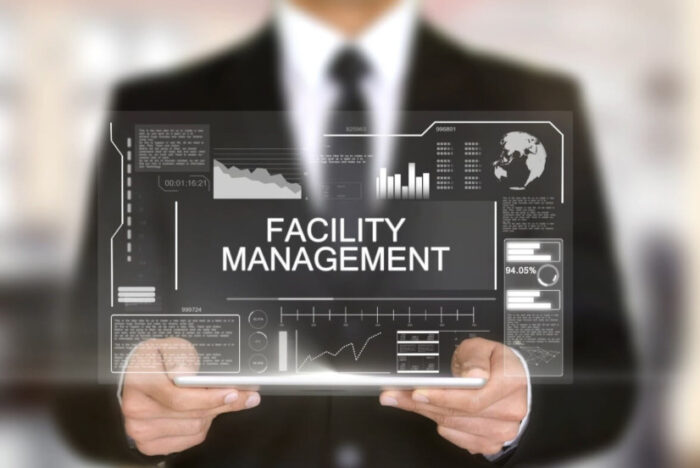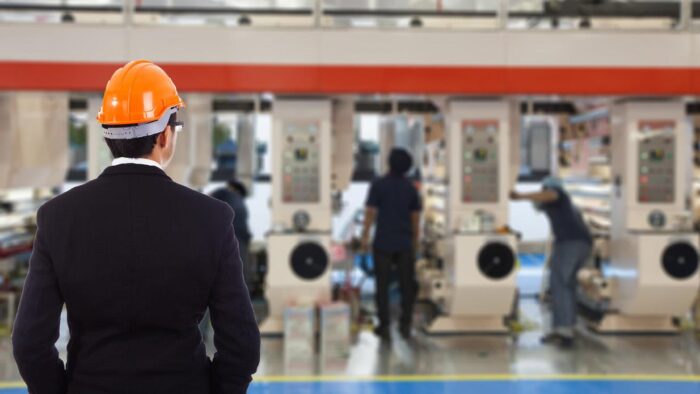
Facility management is a frequently popular term, yet its definition is ambiguous for many. Although the basic outlines of this term are not exact, the actions that it encompasses are legitimate and carry significant stakes for the businesses that have to maintain their buildings.
Whatever industry the company is in, ensuring the proper facilities maintenance it utilizes to conduct its business is among the most critical factors that can boost productivity regardless of whether it improves the working conditions for the people who work in these buildings or maximizes maintenance processes. There are a variety of fundamental developments in the management of facilities that are designed to increase productivity.
The Importance of Facility Management

Facility management helps to keep the company’s assets, such as equipment, buildings, property, and other components that are in operational use. It helps the company in making sure that they comply with the regulations. Additionally, facility management can:
- Ensure a healthy and safe workplace for employees and customers;
- Help to prevent physical assets and prevent costly repairs.
- Minimize the likelihood of the frequency of
- Avoid penalties and damage to the reputation of the company;
- Enhance the environmental safety and help prevent severe health hazards to the public;
- Help to increase the value of the property.
What Are the Primary Responsibilities of Facility Managers?
What exactly does a facilities manager do? Numerous activities require facility management which is essential for the operation of a company. The details of these tasks can differ depending on the kind of facility management is discussed. However, the following tasks comprise the broad scope of responsibility for facility management.
Control The Day-To-Day Operations
The primary responsibility of facility managers is to ensure that the company’s day-to-day operations are executed efficiently. They conduct inspections of workplaces and equipment. They also direct the maintenance team to address technical issues and work with administrators and workers to resolve any issues.
Assets Management, Proactive Maintenance and Building Management
Keeping track of facilities and equipment that require repair, replacement, or upgrading is an additional crucial job that facility administrators must complete. Alongside keeping track of their facility’s assets, they are also required to think about and study possible replacements for equipment and systems that can increase productivity. In some ways, a facility manager’s job is similar to property management.
They also have the responsibility of scheduling the necessary maintenance tasks to ensure that there is minimal disruption to both the business and the workers. This is not limited to reactive maintenance to address issues when they occur. However, it should also include preventative maintenance to stop problems at all. Therefore, facilities managers must adopt an active approach to property maintenance to cut down on the cost of maintenance.
Control Partnerships Between Third Party Partners
Another aspect that facilities management has is to manage the company’s relationships with suppliers and other third-party partners to ensure that the business can access the appropriate sources through contract management.
They create contracts with third-party suppliers and ensure that the needs of the business are met. They are vital in establishing and maintaining good relations between the company and its suppliers and other partners.
Respond to Emergencies

Facilities managers put plans for contingency in emergencies to ensure the security and safety of the building and the employees. Emergency preparedness could involve maintaining physical systems such as fire alarms in good order, installing building security systems, or setting up procedures such as evacuation guidelines.
Create A Future Plan
Alongside the day-to-day operation of their facilities, facility managers must also consider the larger perspective, assisting the upper management is making plans to achieve the company’s goal in the long term. They can assist in planning and discussing future projects or offer advice to technical experts on the kind of resources the business will require to reach its future goals.
Facility Manager Vs. Maintenance Supervisor
A maintenance supervisor is typically only responsible for the group of employees under his supervision. In contrast, the maintenance manager is responsible for the performance of the equipment, staff, and, often, the resources assigned to the maintenance department of an organization or building. Although a supervisor is required to oversee the performance of every worker in the team, management is accountable for the overall performance of department performance. So, the facility manager needs a distinct set of skills compared to the maintenance supervisor’s skills set.
Facility Management Technology

The equipment used in facilities management is comprised of both systems and software. A vast amount of data is generated by buildings by the Internet of Things (IoT) sensors such as Wi-Fi meters, gauges, along with intelligent phones. The most efficient solutions allow facilities managers to effectively use the data they collect by integrating analysis and AI (AI) in the form of an Integrated Workplace Management System (IWMS).
These solutions provide the cognitive abilities that help make computer-aided facility management possible. So you can analyze and learn from the data you collect, allowing you to have real-time access and perform predictive maintenance of facilities and design more productive and cost-effective environments.
Functions of Facility Management

In various industries and sizes, facilities managers face numerous crucial day-to-day responsibilities. They must prepare for the future and be ready for different jobs on any given day. The responsibilities of a manager typically comprise:
- Real estate management
- Capital projects and planning
- Management of space and occupancy
- Lease administration and accounting
- Workplace experience
… There are other ways to improve the performance of each of the responsibilities that are on the manager’s calendar:
- Deliver operational efficiencies
- Provide an environment conducive to productivity
- Discover and adopt solutions to technological problems
- Ensure compliance with the regulations
- Reduce the risk to facilities and employees
- Reduce the energy costs of your home
- Lower their carbon footprint by reducing the footprint created by the Real Estate portfolio.
Facility Management Software Is a Necessity for Modern Organizations

Facilities management applications are the ideal method to increase the effectiveness of facility managers in your company. User portals allow for direct communications between facility managers and other employees of your company and ensure that requests and work orders are completed quickly, which ensures your business is running.
Additionally, you’ll be able to effortlessly automate routine tasks such as cleaning and maintenance control your physical resources with better precision, and maintain safe records of billing, invoices, and payments. This is essential to optimize operations overall; however, it’s also crucial for a more straightforward return to the workplace.









